-
 Bitcoin
Bitcoin $114400
0.68% -
 Ethereum
Ethereum $3550
2.48% -
 XRP
XRP $3.001
4.99% -
 Tether USDt
Tether USDt $0.9999
0.01% -
 BNB
BNB $757.6
1.46% -
 Solana
Solana $162.9
1.07% -
 USDC
USDC $0.9998
0.00% -
 TRON
TRON $0.3294
0.91% -
 Dogecoin
Dogecoin $0.2015
2.46% -
 Cardano
Cardano $0.7379
2.01% -
 Stellar
Stellar $0.4141
8.83% -
 Hyperliquid
Hyperliquid $37.83
-1.91% -
 Sui
Sui $3.454
0.76% -
 Chainlink
Chainlink $16.62
3.53% -
 Bitcoin Cash
Bitcoin Cash $554.6
2.84% -
 Hedera
Hedera $0.2486
3.91% -
 Ethena USDe
Ethena USDe $1.001
0.00% -
 Avalanche
Avalanche $21.95
3.34% -
 Toncoin
Toncoin $3.563
-2.85% -
 Litecoin
Litecoin $112.7
2.65% -
 UNUS SED LEO
UNUS SED LEO $8.977
0.13% -
 Shiba Inu
Shiba Inu $0.00001232
1.85% -
 Uniswap
Uniswap $9.319
2.93% -
 Polkadot
Polkadot $3.632
1.38% -
 Monero
Monero $307.2
2.36% -
 Dai
Dai $0.9997
-0.03% -
 Bitget Token
Bitget Token $4.340
0.91% -
 Pepe
Pepe $0.00001048
1.07% -
 Cronos
Cronos $0.1348
3.26% -
 Aave
Aave $261.5
1.93%
Trading rules for KuCoin contracts
Understanding and adhering to KuCoin's comprehensive trading rules, covering order types, margin requirements, risk management, and liquidation, are vital for successful contract trading on the platform.
Nov 09, 2024 at 01:55 am
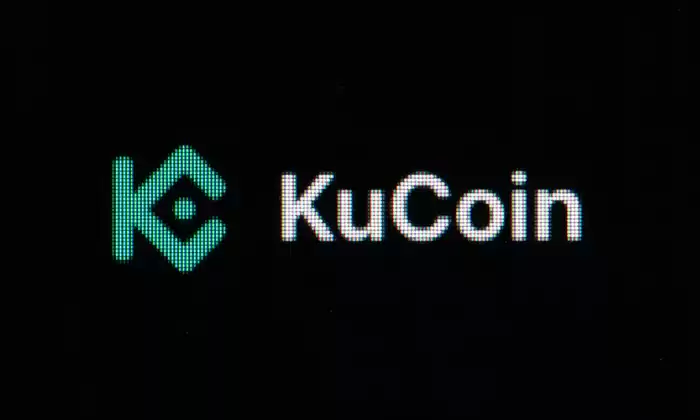
Trading Rules for KuCoin Contracts
KuCoin, a leading cryptocurrency exchange, offers various contract trading services, providing traders with opportunities to speculate on the price movements of underlying assets. To ensure a fair and orderly trading environment, KuCoin has established comprehensive trading rules that all traders must adhere to. These rules cover aspects such as order types, margin requirements, risk management, and liquidation. A thorough understanding of these rules is essential for successful contract trading on KuCoin.
1. Order Types
KuCoin supports a variety of order types to cater to different trading strategies.
- Market Order: A market order is executed immediately at the best available market price. It is the simplest and fastest order type but does not offer any price control.
- Limit Order: A limit order specifies a maximum or minimum price at which a trader is willing to buy or sell. It remains open until it is executed or canceled. Limit orders provide greater price control and are often used to set target prices for entry or exit.
- Stop-Limit Order: A stop-limit order combines a stop order and a limit order. It is initially placed as a stop order, which triggers the limit order to execute once a specified price is reached. This order type helps to protect against unexpected price movements.
2. Margin Requirements
Margin trading allows traders to increase their potential profits by leveraging borrowed funds. However, it also amplifies potential losses. KuCoin sets specific margin requirements for each contract, which determine the amount of margin that traders need to maintain for open positions.
- Initial Margin: This is the minimum amount of margin required to open a position. It serves as collateral in case the market moves against the trader.
- Maintenance Margin: This is the minimum amount of margin that must be maintained for an open position to remain active. If the trader's margin falls below this level, a margin call will be triggered.
- Risk Management
KuCoin has implemented risk management measures to prevent excessive losses.
- Leverage Limits: KuCoin limits the leverage that traders can use for each contract. This helps to reduce the potential for excessive risk-taking and market volatility.
- Auto-Deleveraging: In the event of extreme market volatility or if a trader's margin falls below the maintenance margin, KuCoin may engage in auto-deleveraging. This involves closing open positions to reduce the trader's risk.
4. Liquidation
If a trader's margin falls below the liquidation price, KuCoin will liquidate their positions to cover their losses.
- Liquidation Price: This is the price level at which a position will be liquidated due to insufficient margin.
- Liquidation Fee: A liquidation fee is charged to cover the costs of liquidating positions.
Disclaimer:info@kdj.com
The information provided is not trading advice. kdj.com does not assume any responsibility for any investments made based on the information provided in this article. Cryptocurrencies are highly volatile and it is highly recommended that you invest with caution after thorough research!
If you believe that the content used on this website infringes your copyright, please contact us immediately (info@kdj.com) and we will delete it promptly.
- Cryptocurrency, Altcoins, and Profit Potential: Navigating the Wild West
- 2025-08-04 14:50:11
- Blue Gold & Crypto: Investing Disruption in Precious Metals
- 2025-08-04 14:30:11
- Japan, Metaplanet, and Bitcoin Acquisition: A New Era of Corporate Treasury?
- 2025-08-04 14:30:11
- Coinbase's Buy Rating & Bitcoin's Bold Future: A Canaccord Genuity Perspective
- 2025-08-04 14:50:11
- Coinbase's Buy Rating Maintained by Rosenblatt Securities: A Deep Dive
- 2025-08-04 14:55:11
- Cryptos, Strategic Choices, High Returns: Navigating the Meme Coin Mania
- 2025-08-04 14:55:11
Related knowledge
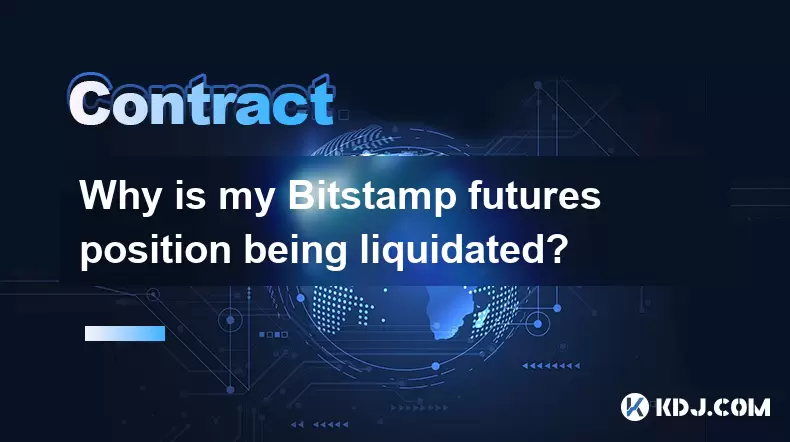
Why is my Bitstamp futures position being liquidated?
Jul 23,2025 at 11:08am
Understanding Futures Liquidation on BitstampFutures trading on Bitstamp involves borrowing funds to open leveraged positions, which amplifies both po...
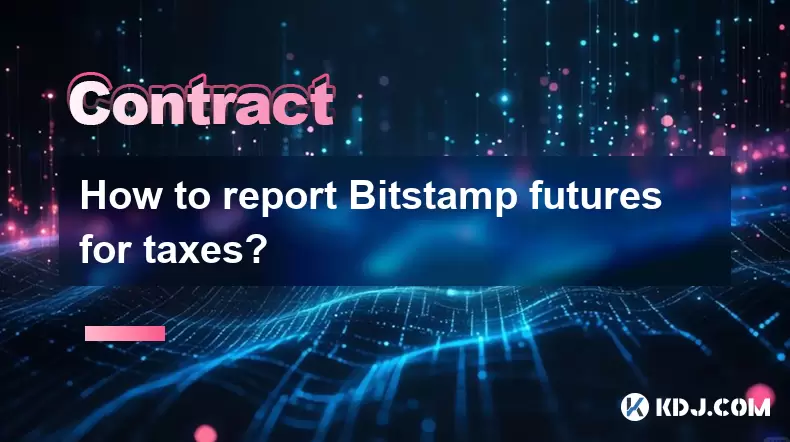
How to report Bitstamp futures for taxes?
Jul 30,2025 at 08:35am
Understanding Bitstamp Futures and Taxable EventsWhen trading Bitstamp futures, it’s essential to recognize that these financial instruments are treat...
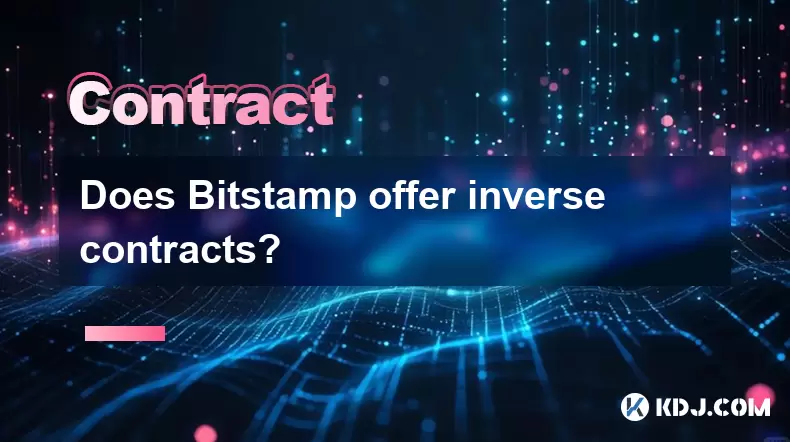
Does Bitstamp offer inverse contracts?
Jul 23,2025 at 01:28pm
Understanding Inverse Contracts in Cryptocurrency TradingIn the realm of cryptocurrency derivatives, inverse contracts are a specific type of futures ...
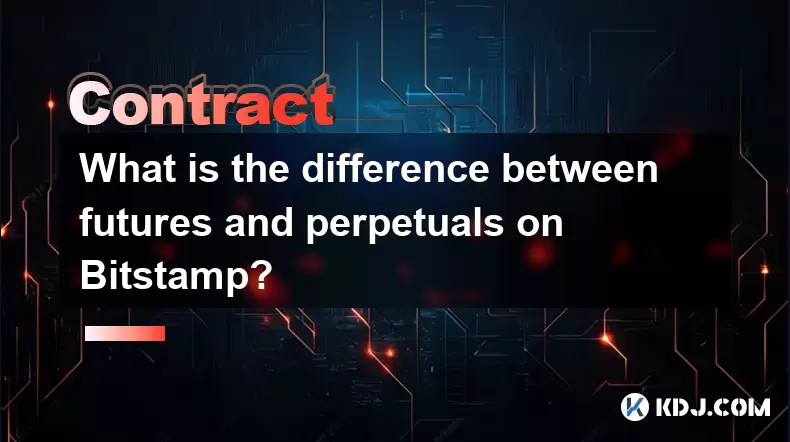
What is the difference between futures and perpetuals on Bitstamp?
Jul 27,2025 at 05:08am
Understanding Futures Contracts on BitstampFutures contracts on Bitstamp are financial derivatives that allow traders to speculate on the future price...
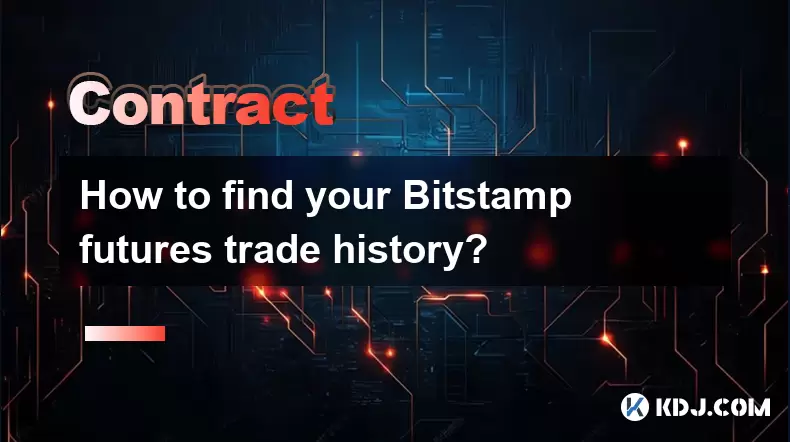
How to find your Bitstamp futures trade history?
Jul 23,2025 at 08:07am
Understanding Bitstamp and Futures Trading AvailabilityAs of the current state of Bitstamp’s service offerings, it is critical to clarify that Bitstam...
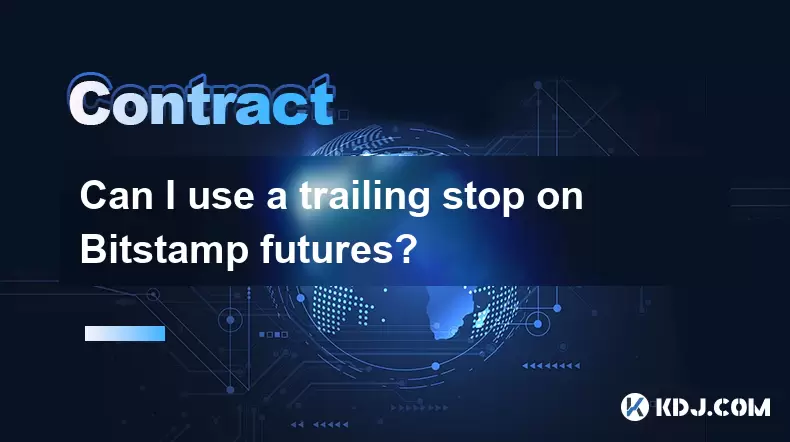
Can I use a trailing stop on Bitstamp futures?
Jul 23,2025 at 01:42pm
Understanding Trailing Stops in Cryptocurrency TradingA trailing stop is a dynamic type of stop-loss order that adjusts automatically as the price of ...

Why is my Bitstamp futures position being liquidated?
Jul 23,2025 at 11:08am
Understanding Futures Liquidation on BitstampFutures trading on Bitstamp involves borrowing funds to open leveraged positions, which amplifies both po...

How to report Bitstamp futures for taxes?
Jul 30,2025 at 08:35am
Understanding Bitstamp Futures and Taxable EventsWhen trading Bitstamp futures, it’s essential to recognize that these financial instruments are treat...

Does Bitstamp offer inverse contracts?
Jul 23,2025 at 01:28pm
Understanding Inverse Contracts in Cryptocurrency TradingIn the realm of cryptocurrency derivatives, inverse contracts are a specific type of futures ...

What is the difference between futures and perpetuals on Bitstamp?
Jul 27,2025 at 05:08am
Understanding Futures Contracts on BitstampFutures contracts on Bitstamp are financial derivatives that allow traders to speculate on the future price...

How to find your Bitstamp futures trade history?
Jul 23,2025 at 08:07am
Understanding Bitstamp and Futures Trading AvailabilityAs of the current state of Bitstamp’s service offerings, it is critical to clarify that Bitstam...

Can I use a trailing stop on Bitstamp futures?
Jul 23,2025 at 01:42pm
Understanding Trailing Stops in Cryptocurrency TradingA trailing stop is a dynamic type of stop-loss order that adjusts automatically as the price of ...
See all articles

























































































